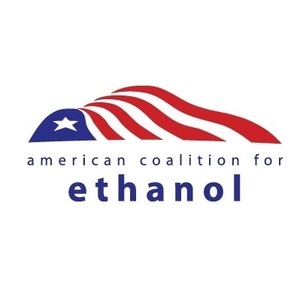USDA program offers opportunity to scale up ACE's RCPP project

November 3, 2021
BY American Coalition for Ethanol
U.S. Department of Agriculture Secretary Tom Vilsack recently announced a new Climate-Smart Agriculture and Forestry (CSAF) Partnership Program designed to scale the deployment of climate-smart farming practices and demonstrate the link those practices have on reducing greenhouse gas (GHG) emissions from products such as biofuels. American Coalition for Ethanol (ACE) CEO Brian Jennings on Nov. 1 submitted comments on how the program should be designed to establish a marketplace at scale that rewards farmers and biofuel producers for the role they play in reducing GHG emissions.
ACE considers the proposed CSAF Program as an opportunity to expand upon the recently announced $7.5 million Expanding Soil Health Through Carbon Markets Regional Conservation Partnership Program (RCPP) project, which ACE is leading with project partners South Dakota Corn Growers, Dakota Ethanol, South Dakota State University, Cultivating Conservation, and collaborator Sandia National Labs. ACE’s comments on the program reflect this objective by outlining how USDA can implement the CSAF Program in a manner that allows for the scaling of farmer access to Low Carbon Fuel Standard (LCFS) markets through the establishment of validated, non-proprietary verification protocols. ACE’s comments today were complemented by those submitted by RCPP project partners Cultivating Conservation and South Dakota State University.
The ACE-led RCPP project will facilitate access to state-based LCFS markets, but it does not account for variabilities across regions and does not ensure that other farmers and ethanol companies will be granted LCFS market access. However, ACE’s project could be scaled to additional sites through the CSAF Program. ACE would use the CSAF Program to gain access to existing state-based LCFS markets, like California’s, and those we expect will be developed based on momentum for new clean fuel policies in Midwest states.
ACE’s feedback underscores that the key to gaining LCFS market access based on NRCS climate-smart conservation practices is by generating better localized quantification and verification of the GHG reductions achieved by these practices. In the case of ACE’s RCPP project, Dakota Ethanol estimates if California credited its farmers for adopting NRCS approved no-till practices with the LCFS program, it would mean between $10 and $12 million a year in premiums for their ethanol. This translates to an approximated $0.39 per bushel for corn grown using climate-smart agriculture practices.
“By providing CSAF payments to farmers who adopt climate-smart practices across a diverse cross-section of the corn belt — combined with CSAF funding for a non-proprietary quantification, verification, and modeling system — CSAF participating ethanol facilities will collect the localized data required to secure access to LCFS markets that includes on-farm contributions,” Jennings detailed in the comments, adding that “USDA should establish a program of GHG and carbon reduction price reporting to provide timely, accurate, and reliable market information, facilitate more informed farmer market decisions, and promote competition in GHG and carbon sequestration credit markets.”
Advertisement
The comments conclude by reiterating that the CSAF Program can best ensure fair compensation (and hence robust farmer participation) by requiring that all quantification and verification protocols developed with CSAF funding are non-proprietary, and mandatory carbon credit price reporting for all CSAF Program projects.
BACKGROUND (DETAILED IN COMMENTS):
ACE has methodically and strategically worked to expand opportunities for the production and use of low carbon biofuels at scale for the past several years.
Advertisement
In 2014, ACE began consulting with the Department of Energy’s Argonne National Laboratory on improvements to its GREET model to ensure the climate contributions made by farmers are properly credited in the lifecycle modeling tool. ACE’s engagement has resulted in several refinements that better account for farmers’ evolving practices and more accurately quantify corn ethanol’s ever-shrinking carbon footprint, including improvements to the 2021 GREET model.
In 2018, ACE published the White Paper “The Case for Properly Valuing the Low Carbon Benefits of Corn Ethanol,” which dissects lifecycle modeling and highlights how progress made in corn production and ethanol biorefining results in lower carbon biofuels. The white paper also emphasized new scientific understandings surrounding on-farm carbon reductions and identified policies that could drive low-carbon biofuels into the future.
The White Paper launched a multi-year stakeholder process, which culminated in a January 2020 framework encouraging new low carbon fuel markets in the Midwest that reward farmers for practices that reduce GHG emissions from biofuels. This framework helped create momentum for new clean fuel policies in several states, including bipartisan legislation which was approved by the Minnesota House of Representatives in 2021.
All this work informed ACE’s collaboration on the RCPP project, which will compensate farmers for adopting climate-smart agricultural practices that sequester carbon, reduce GHG emissions, and improve soil health.
Related Stories
President Trump on July 4 signed the “One Big Beautiful Bill Act.” The legislation extends and updates the 45Z credit and revives a tax credit benefiting small biodiesel producers but repeals several other bioenergy-related tax incentives.
CARB on June 27 announced amendments to the state’s LCFS regulations will take effect beginning on July 1. The amended regulations were approved by the agency in November 2024, but implementation was delayed due to regulatory clarity issues.
The USDA’s National Agricultural Statistics Service on June 30 released its annual Acreage report, estimating that 83.4 million acres of soybeans have been planted in the U.S. this year, down 4% when compared to 2024.
SAF Magazine and the Commercial Aviation Alternative Fuels Initiative announced the preliminary agenda for the North American SAF Conference and Expo, being held Sept. 22-24 at the Minneapolis Convention Center in Minneapolis, Minnesota.
Saipem has been awarded an EPC contract by Enilive for the expansion of the company’s biorefinery in Porto Marghera, near Venice. The project will boost total nameplate capacity and enable the production of SAF.
Upcoming Events










